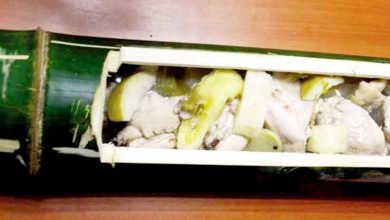
Filipino Superstitions: 5 Funniest We Still Believe Today
Welcome to the world of Filipino superstitions, where belief meets belly laughs. Dive into the whimsical side of Filipino culture as we explore seven superstitions that continue to tickle our funny bones.
1. Swept Away Superstitions: The Midnight Dust Busters
The superstition known as “swept away” revolves around the belief that sweeping the floor, especially in the evening or at night, can lead to negative consequences, such as the removal of good fortune into the household. Many Filipinos actively avoid sweeping at night to avert these perceived repercussions.
This superstition is deeply rooted in traditional beliefs and has been passed down. The concept behind it is that sweeping during the nighttime disrupts or eliminates the positive energy. Some variations of this superstition even suggest that nighttime sweeping might inadvertently clear away the prosperity of the household.
To navigate this superstition, individuals often schedule their cleaning activities during the day.
2. Whistle While You Work – But Not at Night: The Nocturnal Melody Taboo
The Filipino superstition of “don’t whistle at night” advises against whistling, especially in the dark. This belief holds that whistling at night may attract supernatural beings or spirits. The superstition is rooted in the idea that the sound of whistling can summon otherworldly entities.
The belief is deeply rooted in traditional folklore and cultural practices. The notion is that certain spirits or entities are more active during the night, and whistling might be perceived as an invitation or a disturbance to these beings.
3. When you drop a utensil someone will arrive
We’re all familiar with the saying passed down from our grandparents and extended family members: the belief that a dropped spoon signals the arrival of a female visitor, while a fork foretells a male visitor. This humorous tradition turns the accidental dropping of utensils into a playful prelude to someone visiting your home. What adds to the amusement is the anticipated comment each time it happens, with phrases like ‘May bisita ka, babae.’ or ‘Uy may lalaking darating.’ playfully uttered. Over time, this has evolved into a lighthearted and accepted part of our household routine.
4. Jumping at Midnight: The Cinderella Growth Spurt
The Filipino culture associates the superstition of “jumping at midnight” with the belief that leaping at the stroke of midnight during New Year’s Eve will contribute to a person’s height. This tradition is rooted in the idea that by jumping at the moment the new year begins, individuals can symbolically stretch and grow in the coming year.
This superstition mirrors the cultural significance of New Year’s Eve as a time for new beginnings and positive aspirations. Embraced as a fun and festive way to welcome the coming year, it adds a touch of humor and optimism to the festivities. Undoubtedly, this stands out as one of the most well-known Filipino superstitions to date.
READ: 6 Filipino Horror Films To Watch This Halloween 2023!
5. When you bite your tongue, someone is thinking of you
In Filipino culture, there’s a superstition that if you bite your tongue, someone is thinking of you. This belief is shared in the Philippines, attributing the sudden discomfort or pain from biting your tongue to someone thinking about you at that very moment.
Friends and family often share this tongue-biting superstition as a lighthearted way to explain the common experience. It adds a sense of connection and mystery, suggesting someone, somewhere, may be thinking about you. Though lacking a scientific basis, these superstitions enrich cultural beliefs.
Filipino superstitions are not only a reflection of cultural beliefs, but also a source of endless amusement. From dropped utensils predicting guests to leaping into the new year for added height, these beliefs contribute to the Philippines’ vibrant tapestry of traditions. Embrace the laughter, and remember that sometimes, superstitions are meant to bring joy and a good chuckle to our lives.




